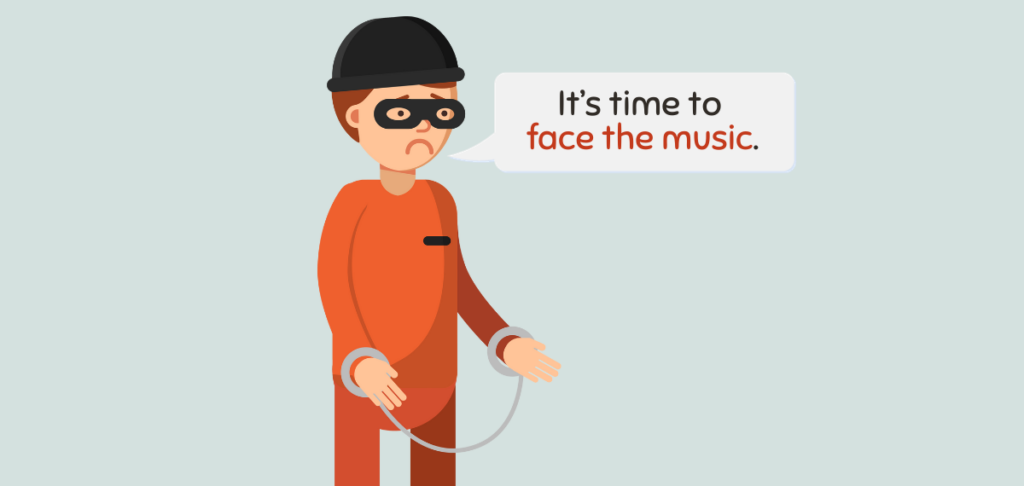The idiom chickens come home to roost is used to convey that actions have consequences, and eventually, one must face the repercussions of their past decisions.
Idioms like chickens come home to roost are phrases where the words together have a different meaning than their individual definitions. They help elevate our language, turning boring statements into ones that stir up thoughts and emotions.
This article details the idiom’s origin, meaning, variations, and usage, giving you a comprehensive understanding of how you can use the idiom. I’ll also discuss its presence in literature and media and give examples to illustrate its purpose in various contexts.
So, if you’ve ever wondered about the idiom chickens coming home to roost, this article clears everything up.

What Does Chickens Come Home to Roost Mean?
Chickens come home to roost is a proverbial expression used to convey that bad deeds or mistakes will eventually catch up with the person making them.
Collins Dictionary defines it as experiencing the unpleasant effects of bad actions. In addition, the Cambridge Dictionary says if a past action, mistake, etc., comes home to roost, it causes problems at a later date, especially when this is expected or seems deserved.
A great example of this idiom’s meaning in real life is from an author friend of mine. She writes amazing stories but refused to hire an editor for years. Finally, her chickens came home to roost, and she had to find an editor to work on her entire backlist of nearly thirty novels.
Literal and Figurative Meanings
Literally, the phrase draws from the natural behavior of chickens that return to their roost at night, regardless of where they have been during the day.
Figuratively (in its idiomatic sense), chickens come home to roost shows that actions, especially misdeeds, will eventually catch up with the person. It’s a reminder that accountability is an unavoidable part of life.
Are There Variations of This Idiom?
A slight variation of the idiom chickens come home to roost is curses come home to roost, which implies that negative wishes or mean words uttered against others might eventually backfire on the person who said them. A shortened version is come home to roost, deriving from the longer form of the main idiom.
Regardless of the variation you use, the core meaning is the same: pointing out the return of someone’s actions or words back to them.
How Is the Idiom Used, and What Are Some Examples?
Chickens come home to roost has managed to stay relevant over time. It appears in conversations and writings to express the concept of poetic justice or karmic retribution.
What Are Different Ways of Using the Idiom in Context?
- Reflecting on past mistakes: After years of fraudulent practices, his chickens have finally come home to roost, and he’s under investigation.
- In politics: The senator’s neglect of his constituents was glaring, and came election time, the chickens came home to roost.
- In our personal lives: Ignoring her health for years, my mother finally realized that the chickens had come home to roost when she received her diagnosis.
Are There Notable Examples of the Idiom in Movies, Books, or Media?
Of course! Robert Southey, an English poet of the 18th century, is noted to have used the expression in his work titled “The Curse of Kehama.”
We also see it used in some publications:
“This year with COVID, diesel prices way down . . . and you use today’s (oil) prices, the chickens come home to roost.” (The Calgary Herald)
Protester Fran Witt urged the Conservative councillor “not to let East Sussex County Council’s fossil fuel chickens come home to roost”. (The Argus)
Here a bump, there a bump, and one day the chickens come home to roost. (The Las Vegas Sun)
What Is the Origin of the Idiom Chickens Come Home to Roost?

The origin of the idiom chickens come home to roost dates back to the 14th century. Its first recorded usage is found in Geoffrey Chaucer’s “The Parson’s Tale,” where he pens, “And ofte tyme swich cursynge wrongfully retorneth agayn to hym that curseth, as a bryd that retorneth agayn to his owene nest.”
However, the specific phrasing chickens come home to roost is attributed to Robert Southey, who introduced it in his 1810 poem, “The Curse of Kehama”: “Curses are like young chicken: they always come home to roost.” Thus, the idiom we recognize today was born.
How Has the Idiom Evolved?
Like most sayings that become common idioms, over time, the phrase chickens come home to roost has transitioned from literary use to everyday language, holding its relevance and meaning throughout the years. Now, we simply say come home to roost because the word chickens has become unnecessary.
What Are the Related Terms to This Idiom?
Learning about related terms provides a broader context for understanding and utilizing any phrase, especially one like this. Here are some synonyms, antonyms, and related terms for come home to roost.

Similar Phrases and Idioms
- What goes around comes around
- Reap what you sow
- Pay the piper
- Face the music
- As you make your bed, so you must lie in it
- Get a taste of your own medicine
- Every dog has its day
- The past catching up
Related Terms and Phrases
- Karma
- Boomerang effect
- Tit for tat
- Bite the bullet
- Take it on the chin
- Wake-up call
- The domino effect
- Fallout
- Hard pill to swallow
- Skeletons in the closet
Antonyms
- Turn over a new leaf
- Water under the bridge
- Let bygones be bygones
- Wipe the slate clean
- The coast is clear
- Make a clean break
- Get off scot-free
- Start with a clean sheet
- Get away with
- Evade responsibility
Don’t Let It Come Back to Bite You!
Chickens come home to roost works as the perfect reminder that our actions, good or bad, will eventually circle back to us. Karma is a real thing! From its origins in the 14th century to its widespread use today, the phrase has stood the test of time, retaining its meaning and relevance.
Through my examples, variations of the phrase, and a look into its historical background, I hope my article has given you a better understanding of using this idiom. Expand your vocabulary and idiomatic insight with more of my guides!
Related Articles:
